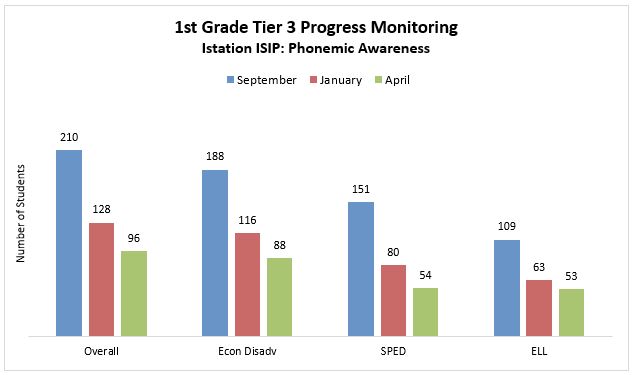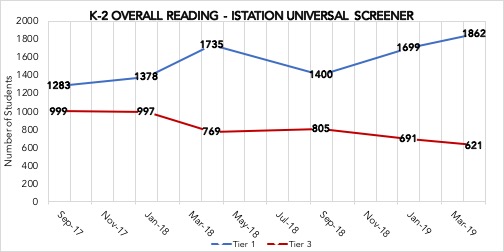Profiles of Success | Spotlight on Fort Smith Public Schools
Background
Fort Smith Public Schools in Fort Smith, Arkansas, serves a large percentage of students who are at-risk of reading failure. Beginning in the 2017-18 school year, Fort Smith Public Schools implemented Lindamood-Bell® instruction to address the specific needs of dyslexic students and provide a solid foundation for all early learners. The partnership has been cost-effective for schools and life-changing for students.
Watch them speak about their experience.
Click to read about their successful summer reading program.
Professional Development
More than 300 teachers, including all K-2 classroom teachers, special education teachers, and reading interventionists, attended workshops to learn the steps of Visualizing and Verbalizing for Language Comprehension and Thinking, and Seeing Stars for Reading Fluency and Spelling. The programs, written by Lindamood-Bell co-founder, Nanci Bell, address the imagery-language foundation that underlies reading, spelling, language comprehension, memory, and critical thinking.
After the workshops, teachers continued learning throughout the year with job-embedded professional development. Support was provided in a cost-effective manner, via state-of-the-art telepresence coaching.
Professional Development:
- Teacher Workshops
- Job-embedded Coaching via Telepresence Robot
- Instructional Leadership Support
Results | Tier 3 Students
Student gains were measured with a universal screener, the Istation ISIP Phonemic Awareness subtest. In Fall 2017, 210 first grade students scored in the lowest group, Tier 3, for Phonemic Awareness. Students scoring in the lowest tier qualify for immediate small-group reading intervention.
In January, the number of students in the lowest tier was reduced to 128, and by April, only 96 students still scored in the lowest tier. Crucially, these changes were reflected across the most at-risk subpopulations of Economically Disadvantaged, Special Education, and English Language Learners. The results of this study illustrate that Lindamood-Bell instruction in the Seeing Stars® program leads to improved reading, which is essential to achieving success with school curricula.

Longitudinal Results | Classroom Instruction
K-2 classroom implementation addressed a district goal of preventing literacy deficits from ever being established. All Kindergarten through second grade teachers across the 19 elementary schools attended Seeing Stars and Visualizing and Verbalizing workshops. Teachers implemented the programs 15 minutes per day as a supplement to their core reading program, with support provided by Lindamood-Bell’s online job-embedded professional development team.
At the beginning of 2017-18, almost as many students (999) scored in the lowest tier on overall reading, as scored in the highest tier (1,283). Students scoring in Tier 3 are required by state law to receive intervention, placing substantial pressure on the district’s capacity. As a result of implementing sensory-cognitive instruction in the whole classroom K-2 setting, by April of 2019, only 621 students scored in the lowest tier (a reduction of 378 students), with 1,862 students scoring in the highest tier (an increase of 579 students).

These changes were reflected across subpopulations of Economically Disadvantaged, Special Education, and English Language Learners. The results of this study illustrate that implementing Lindamood-Bell instruction in the Seeing Stars and Visualizing and Verbalizing programs in whole classroom settings leads to improved reading, which is essential to achieving success with school curricula.
Read about Fort Smith‘s success in a recent article in the Entertainment Fort Smith Magazine titled, “Comprehensive Early Intervention Results Positive.”
Learn More
Schools partner with Lindamood-Bell for our expertise in research-validated programs that work within a Response to Intervention (RtI) framework and are aligned with state standards, including Common Core. We are uniquely prepared to help schools meet the needs of students with dyslexia.
Explore our professional development workshops and contact us with any questions or to discuss how your school can get started: 800-233-1819.







